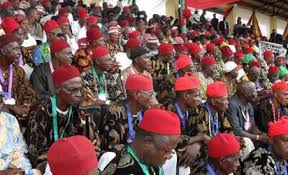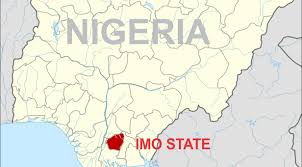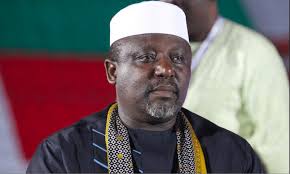For two reasons, the Association of Imo State Indigenous Town Unions (AISITU) has become a beautiful bride. First, there is an increasing urge for Igbo people everywhere to reconnect with and reinvigorate their homegrown leadership platform which is the Town Union. Second, the resilience and vigour which the Town Unions in Imo State have displayed in withstanding the onslaughts from a past political leadership in the State and in discharging their duties to the communities have further earned them the limelight.
In view of the foregoing, the transition to a new leadership in the revered group is expected to generate so much heat, and the zest, energy and determination which the aspirants have put into the electoral process have justified such expectation. Chief Emeka Diwe, the inimitable grassroots mobilizer, will very soon serve out his tenure as President-General of all the Town Unions in Imo State. Diwe, the unwavering advocate of good governance realized through integrity in service delivery, hails from Orlu Zone. And the position is supposed to leave Orlu, for the Constitution of the Association provides for the rotation of the coveted seat among the three senatorial districts of the state, namely: Owerri, Okigwe and Orlu.
Now, a debate has ensued. Which senatorial zone is the next in line, since Orlu has had its turn? The Electoral Committee has tried to address the above question by throwing open the contest between Owerri and Okigwe. This decision of Electoral Committee is said to have been adopted by the entire Executive of the Association. However, an interested aspirant from Owerri zone, Prince Vincon Uwakwe Uwandu, objected to it. In a report which was published in two Imo-based tabloids, Vincon argued that Okigwe was unfit to contest for the office, since, according to him, an Okigwe man had some time in the past served as President-General of the Association.
His views were also upheld by Chief Ambrose Akah, another aspirant from Owerri, who in a memo to members of the Association objected to the eligibility of Okigwe zone. But, in reaction, majority of the Presidents of Presidents-General (POPs) in the local government areas of Owerri zone quickly put up a communiqué, clearly distancing Owerri zone from the views of Prince Vincon and Chief Akah, and restated the resolve of Owerri zone to participate, compete and win the election. In furtherance to that, Chief Sampson Ogbos from Owerri zone declared his interest to run for the office and duly obtained his nomination form.
However, there are some questions that should be addressed in a sustainable manner, so that the Town Unions, which have always been held high as the bastion of democracy in Igboland, don’t leave some parties in the forthcoming contest with a different impression.
First, has Okigwe zone ever produced a President-General for the Association of Imo State Indigenous Town Unions(AISITU)? If no, who was Evangelist Eric Ibeh and what was his role in the Association? Second, when did the Association of Imo State Indigenous Town Unions (AISITU) come into being and by which instrument? Third, can a law or constitution take effect retroactively?
The answers to these question are interwoven, but let us approach them from this angle. In December 2005, Chief Achike Udenwa, then Governor of Imo State, came up with the idea of floating a convergence of Town Union Presidents-General, which he named Imo State Council of Town Union Presidents-General (ISCOTUP). He appointed Evangelist Eric Ibeh to act as the overseer of the group. Thirteen months later, precisely in January 2007, Evang. Ibeh who was never elected, was removed and the group held its very first election which produced Chief Emeka Diwe from Orlu zone as President-General.
In 2012, the Corporate Affairs Commission (CAC) gave a legal status to the body and registered it as the Association of Imo State Indigenous Town Unions (AISITU) and a binding Constitution was birthed which encapsulated the rotation of offices among the three zones. So, strictly speaking, Okigwe zone has not produced a President-General for AISITU, rather an appointed Caretaker Chairman under ISCOTUP, Evang. Ibeh, who served for only thirteen months.
Second, AISITU came into existence as a legal entity in 2012 through its registration and promulgation of its Constitution, and that Constitution has only been operative under one President-General. Therefore, unless otherwise stated in the Constitution, rotation of the office of President-General began with Orlu Zone.
Third and more fundamentally, a law made in 2012 cannot cover events that occurred in 2005. It almost a legal maxim that laws don’t apply retroactively. This was the reason for the international uproar that followed the execution of three drug peddlers under a military regime in Nigeria, since as at the time they were caught drug peddling had not been outlawed in the country.
The Common Law’s disapproval of retrospective application of laws has deep roots and a long history. In Leviathan, Thomas Hobbes wrote that, “Harm inflicted for a fact done before there was a law that forbade it, is not punishable, for before the law, there is no transgression of the law”. William Blackstone wrote in his Commentaries on the Laws of England: “Here it is impossible that the party could foresee that an action, innocent when it was done, should be afterwards converted to guilt by a subsequent law; he had therefore no cause to abstain from it; and all punishment for not abstaining must of consequence be cruel and unjust.
All laws should be therefore made to commence in ‘futuro’, and be notified before their commencement.So generally in the face of the law, retroactive application is prohibited and has been countlessly disfavored by the courts. Therefore, the right of Okigwe zone to field aspirants for AISITU President-General election is not in dispute of whatever shape or form.









